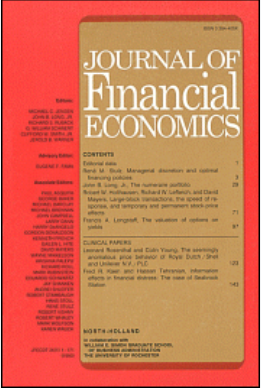流动性选择和基金业绩
IF 10.4
1区 经济学
Q1 BUSINESS, FINANCE
引用次数: 0
摘要
利用全球共同基金和美国存托凭证(ADR)数据,我们测试了基金是否在流动性最强的交易地点战略性地交易交叉上市公司的股票。我们发现,特别是那些在传统技能指标中得分较高的基金,表现出基于流动性的交易场所偏好。我们认为明智的交易动机是这种行为最可能的驱动因素,而不是基于地理、经济、文化或治理动机的偏好。因此,流动性选择与基金的优异表现和选股能力有关,这不仅限于交叉上市公司。我们的测试直接支持多市场环境下的知情交易理论。本文章由计算机程序翻译,如有差异,请以英文原文为准。
Liquidity picking and fund performance
Using global mutual fund and American Depositary Receipt (ADR) data, we test if funds strategically trade cross-listed firms’ equity shares in the most liquid trading location. We find that especially funds that score high on traditional skill measures exhibit a liquidity-based trading venue preference. We identify an informed trading motive as the most likely driver for such behaviour rather than preference based on geographic, economic, cultural, or governance motives. Thus, liquidity picking is associated with fund outperformance and stock selection ability that is not limited to only cross-listed firms. Our tests directly support theories of informed trading in a multi-market setting.
求助全文
通过发布文献求助,成功后即可免费获取论文全文。
去求助
来源期刊

Journal of Financial Economics
Multiple-
CiteScore
15.80
自引率
4.50%
发文量
192
审稿时长
37 days
期刊介绍:
The Journal of Financial Economics provides a specialized forum for the publication of research in the area of financial economics and the theory of the firm, placing primary emphasis on the highest quality analytical, empirical, and clinical contributions in the following major areas: capital markets, financial institutions, corporate finance, corporate governance, and the economics of organizations.
 求助内容:
求助内容: 应助结果提醒方式:
应助结果提醒方式:


